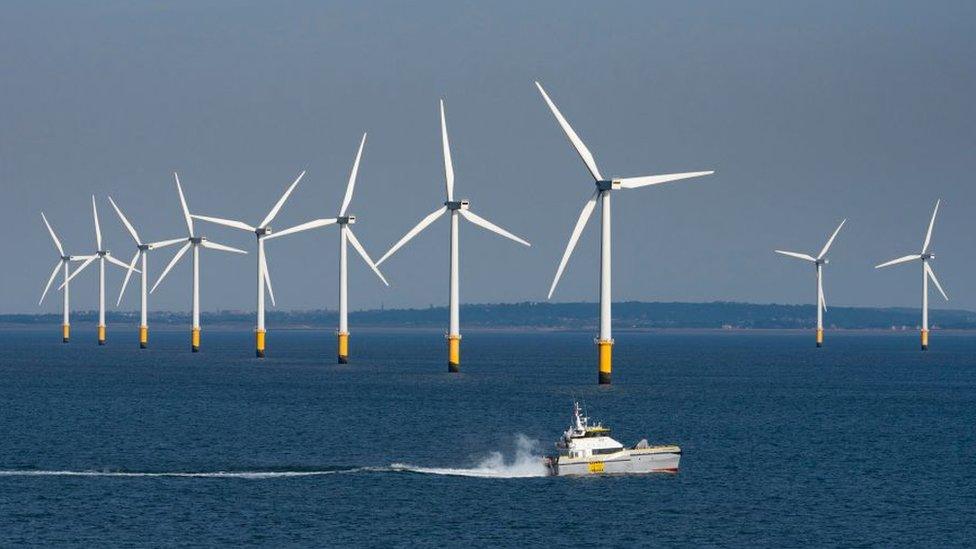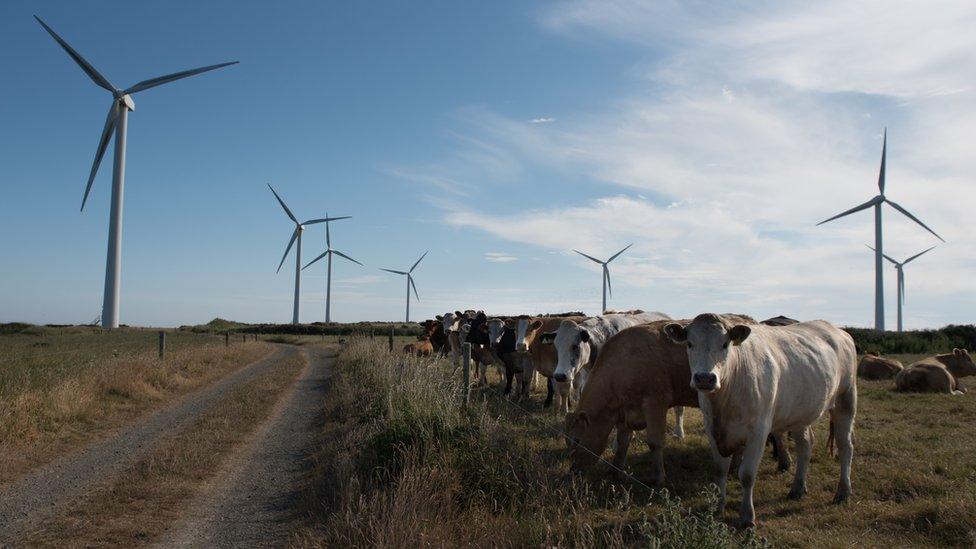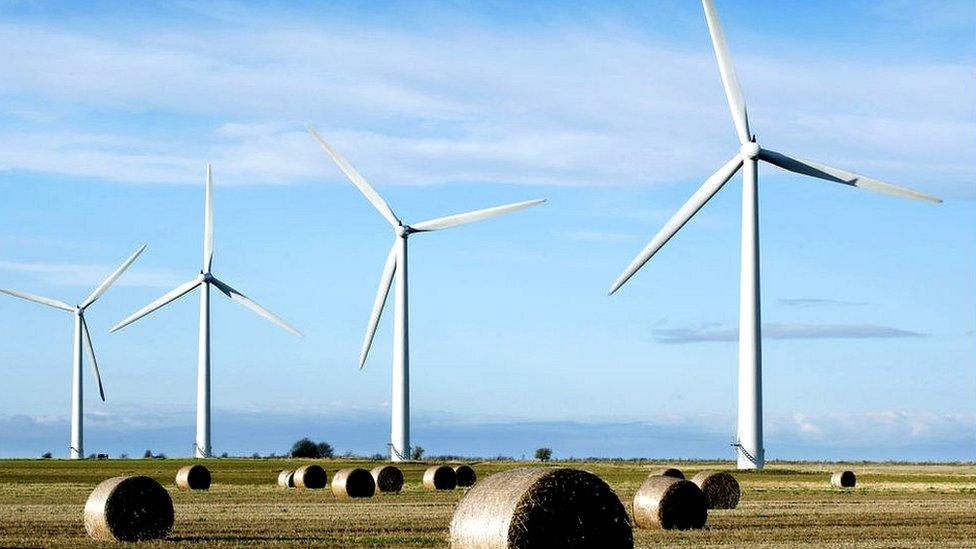UK offshore wind auction set to flop
- Published
- comments

An upcoming auction for seven UK offshore wind projects is set to flop, according to industry sources.
The results are due to be announced on Friday, but the number of bids will be close to zero, or none at all, the sources said.
Offshore wind developers have been saying the price set by the government for the electricity they will generate is too low to make projects viable.
The government said it was committed to increasing the use of renewable energy.
Energy firm SSE and Swedish firm Vattenfall have already ruled themselves out of the bidding, saying that the government had failed to allow for sharp rises in the cost of steel and labour when setting the electricity price.
Industry sources have told the BBC that if big, experienced and well-financed firms cannot make the sums work, it is unlikely that others will be able to.
Under its wind power auctions, the government sets an electricity price which bidders compete to come in at or below.
The arrangement, called a Contract for Difference (CFD), means if electricity prices are above the price set, the companies pay the excess back to energy suppliers, which should help to cut bills. If prices fall below the guaranteed price the energy suppliers - and customers - pay the company the difference.
The £44 per megawatt hour price floor set for this auction fails to take account of development costs, according to industry insiders. They have been warning for some time that steel prices and wage rises had pushed their costs up by between 20% and 40% since the last auction was held at a similar price target.
Electricity generators were also hit with a windfall tax on profits from older projects that pre-dated the Contract for Difference regime. SSE warned at the time that the tax would cause it to review future investment plans.
In July, Vattenfall paused work on a project off the coast of Norfolk due to "challenging market conditions". It added that "financial frameworks have not adapted to reflect the current market conditions".
Offshore wind has been seen as a big success for the UK and the flagship technology in its drive to decarbonise the energy network. It generated roughly 14% of the country's electricity last year.
Dan McGrail, the chief executive of industry group RenewableUK, told the BBC: "Industry has highlighted to government on several occasions that this auction has been set up in a way which is very unlikely to secure the capacity we need to stay on track to meet the government's own target of 50 gigawatts of offshore wind by 2050 [up from 13.66GW now].
"A failure to secure any new offshore wind [projects] in this auction would be a significant setback to the UK's energy security and net zero ambitions."
Labour's shadow energy secretary Ed Miliband told the BBC: "This is just the latest episode in the Tories' 13 years of failed energy policy. They broke the onshore wind market by banning it, they undermined the solar industry by removing the feed-in tariff, and they caused chaos in the home insulation market with their failed schemes.
"Every family and business is paying the price for these failures in higher energy bills, and our country remains exposed."
Some have suggested the government's recent move to loosen restrictions on onshore wind was driven in part by the realisation that tomorrow's offshore wind auction would be a failure.
There are also voices suggesting that it is "convenient" that the recent cabinet reshuffle saw a new energy secretary appointed, with Claire Coutinho replacing Grant Shapps, who was moved to defence.
A Department for Energy Security and Net Zero spokesperson said: "Renewables provided 40% of our electricity last year, compared to 7% in 2010, with offshore wind and the Contracts for Difference scheme playing a big part in that growth.
"The scheme has helped the UK become home to the world's four largest offshore wind farms and we have attracted £120bn investment in renewables since 2010, with a further £100bn in private sector investment expected by 2030 - supporting up to 480,000 jobs.
"We remain committed to further increasing our use of renewables, including offshore wind, to meet our net zero targets and decarbonise our electricity sector by 2035."
Correction 8 September 2023: The article has been changed to remove references to any Treasury role in the CFD.
Related topics
- Published7 September 2023

- Published5 September 2023

